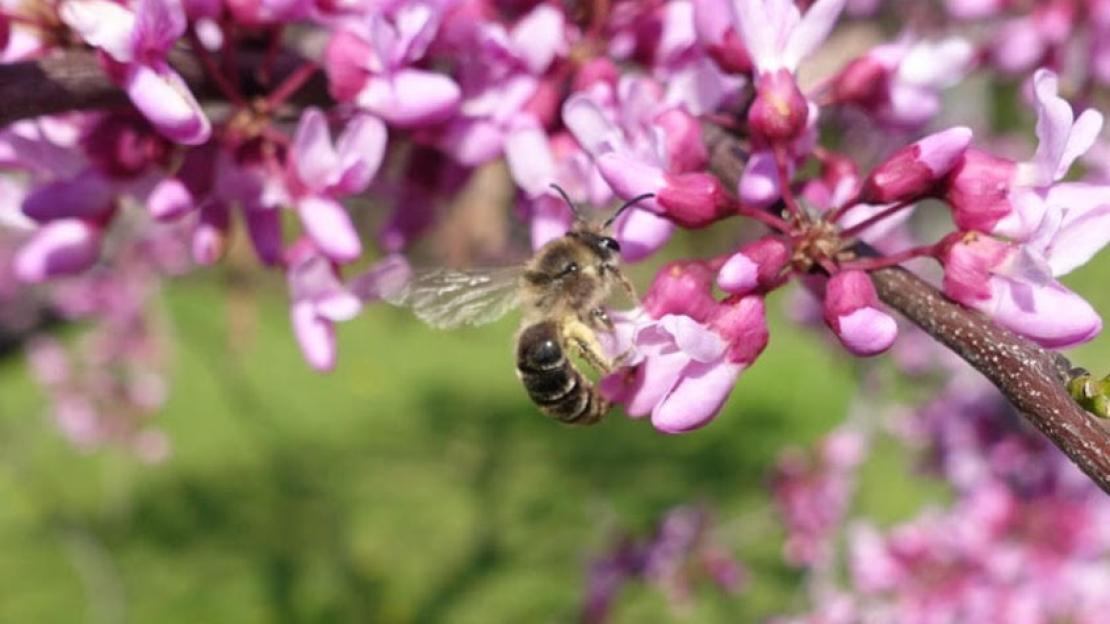There are more than 360 species of bees in Toronto.
But there’s much more that can be done to encourage people to support native bees, even in their own backyards. It’s something that a unique project called Bees in My Backyard (BIMBY) is looking to promote.
“The goal is to create more awareness around wild bees in cities,” says Scott MacIvor, assistant professor in the department of biological sciences at the University of Toronto Scarborough and co-author of the book, The Bees of Toronto.
Wild bees are solitary bees that live in the ground, under stones, in trees and even holes in buildings. These bees pollinate many flowers and crops and are shown to do particularly well in cities.
MacIvor has partnered with the David Suzuki Foundation on BIMBY, which launched this April, and provides everyday citizens with wild bee sanctuaries to encourage nesting. This activity will be monitored by the MacIvor Lab and contribute to their research that looks at patterns in biodiversity and plant-pollinator interactions in Canadian cities.
Another goal of BIMBY is to provide more specificity as to how far bees forage in urban and rural areas, and the diversity of their diet.
In collaboration with the Centre for Biodiversity Genomics at the University of Guelph, samples of pollen from each nest will be analyzed using high throughput sequencing technology, which sets out to determine the identity of every species through DNA barcoding. MacIvor and his colleagues are then able to determine which flowers bees are visiting.
“When people think of bees, they often think first of honeybees. This is problematic when the conversation is on how to ‘save the bees,’” MacIvor says. “Keeping honeybees in a city or natural environment may have unintended consequences, like competing for food with our native wild bees.”
He explains that since honeybees are social and live in large colonies, keeping honeybees also means having many ‘mouths to feed’ in the environment.
In the city, this means less resources for native wild bees. These bees are not social and have to compete individually with wild bees, but also the hundreds of thousands of honeybees that are being kept by humans.
He also explains that with a focus on gardening in cities, all bees may actually have a richer diet.
In April, Toronto City Council adopted their Pollinator Protection Strategy with the goal of supporting initiatives that sustain pollinators and pollination services. The strategy is a part of the City’s larger Biodiversity Strategy.
While BIMBY is not connected to the City initiative, MacIvor was an advisor to the strategy and worked with a team of researchers and beekeepers.
MacIvor won’t have a complete analysis of the data until next year. The data will then be sent to BIMBY participants.
He says it may be a few years until a report can be published.
